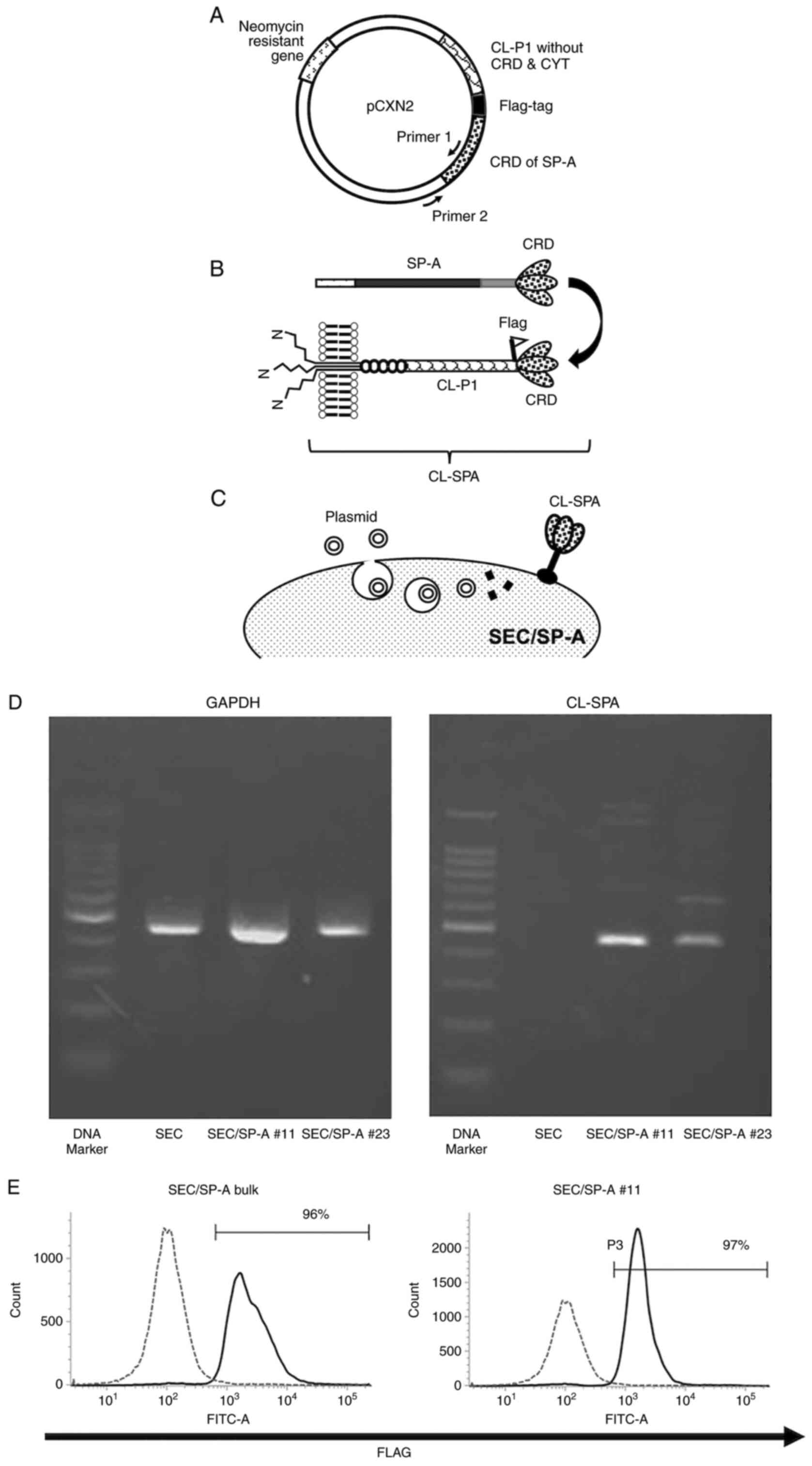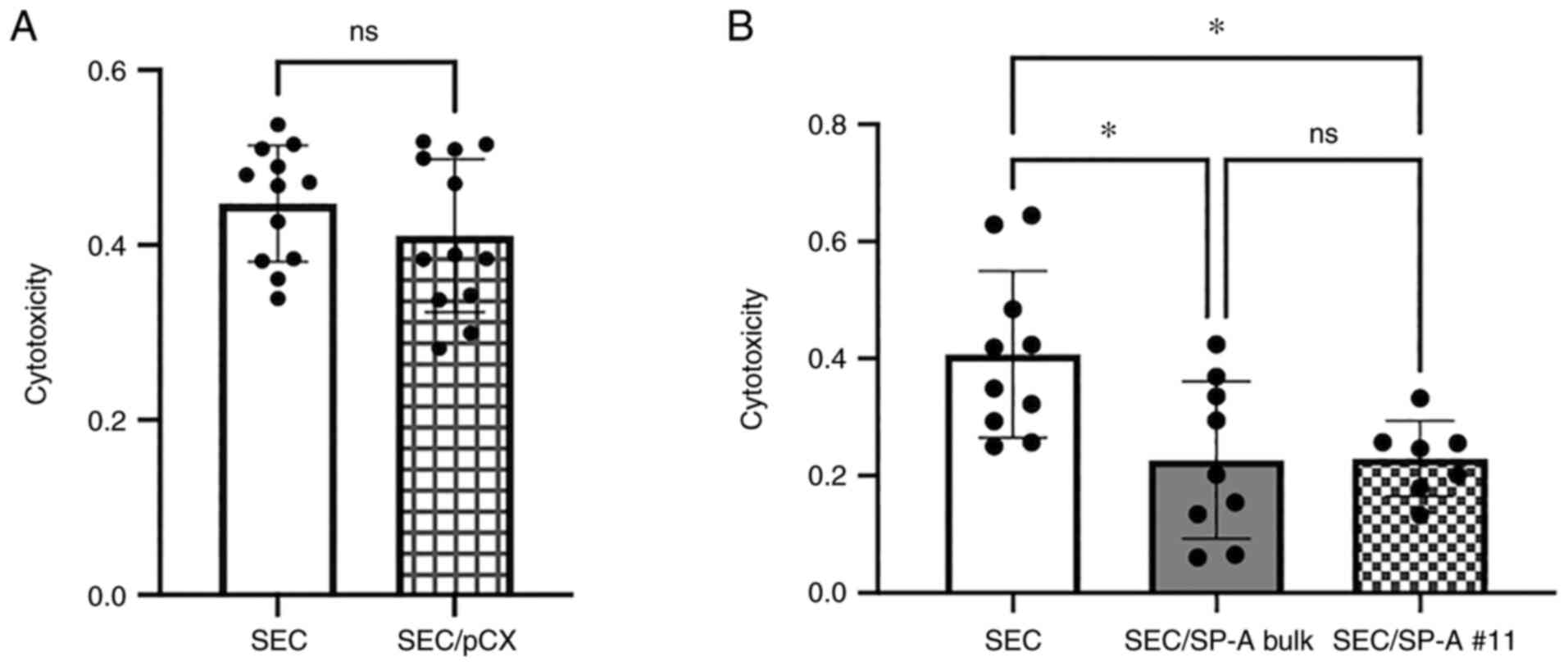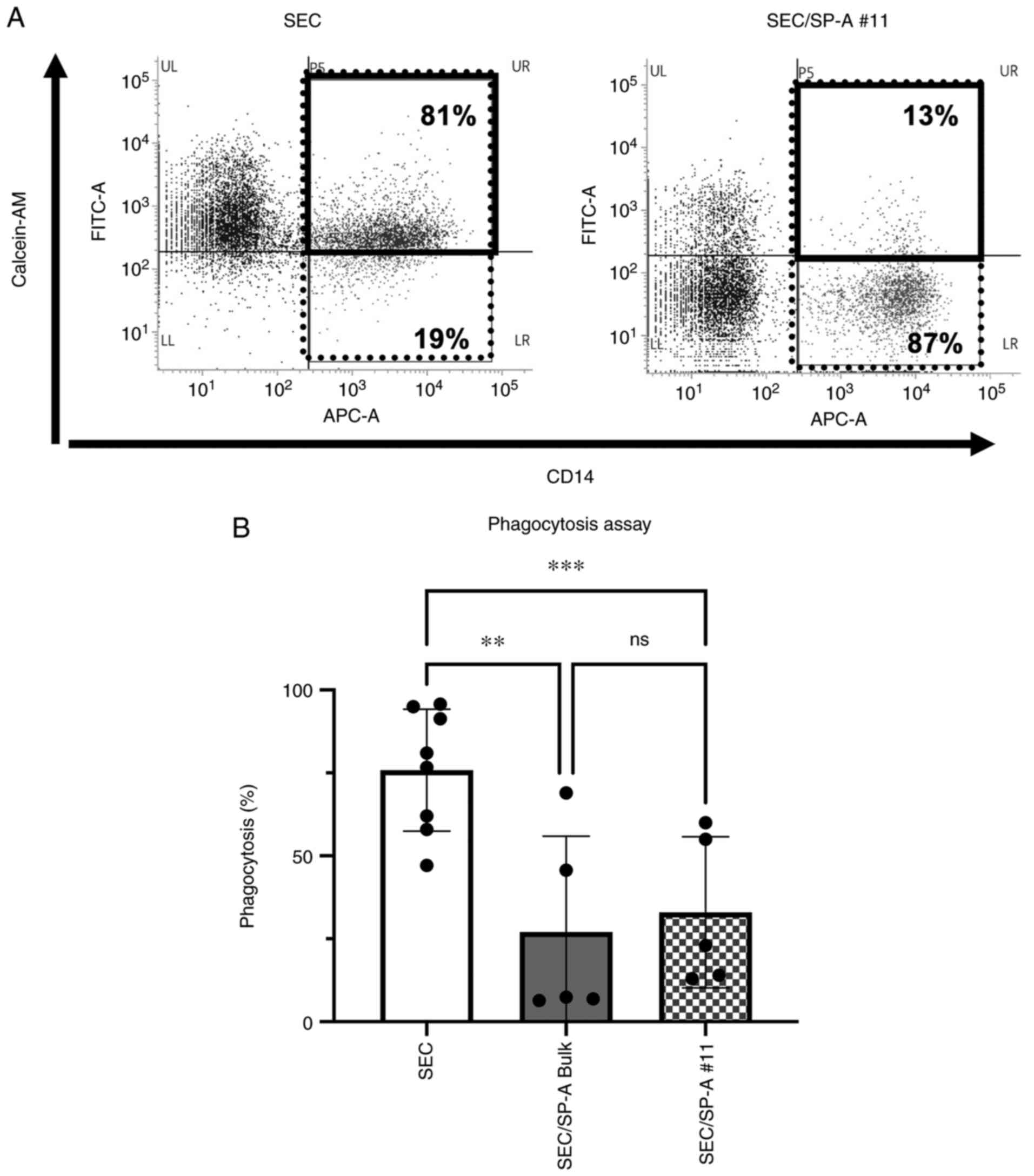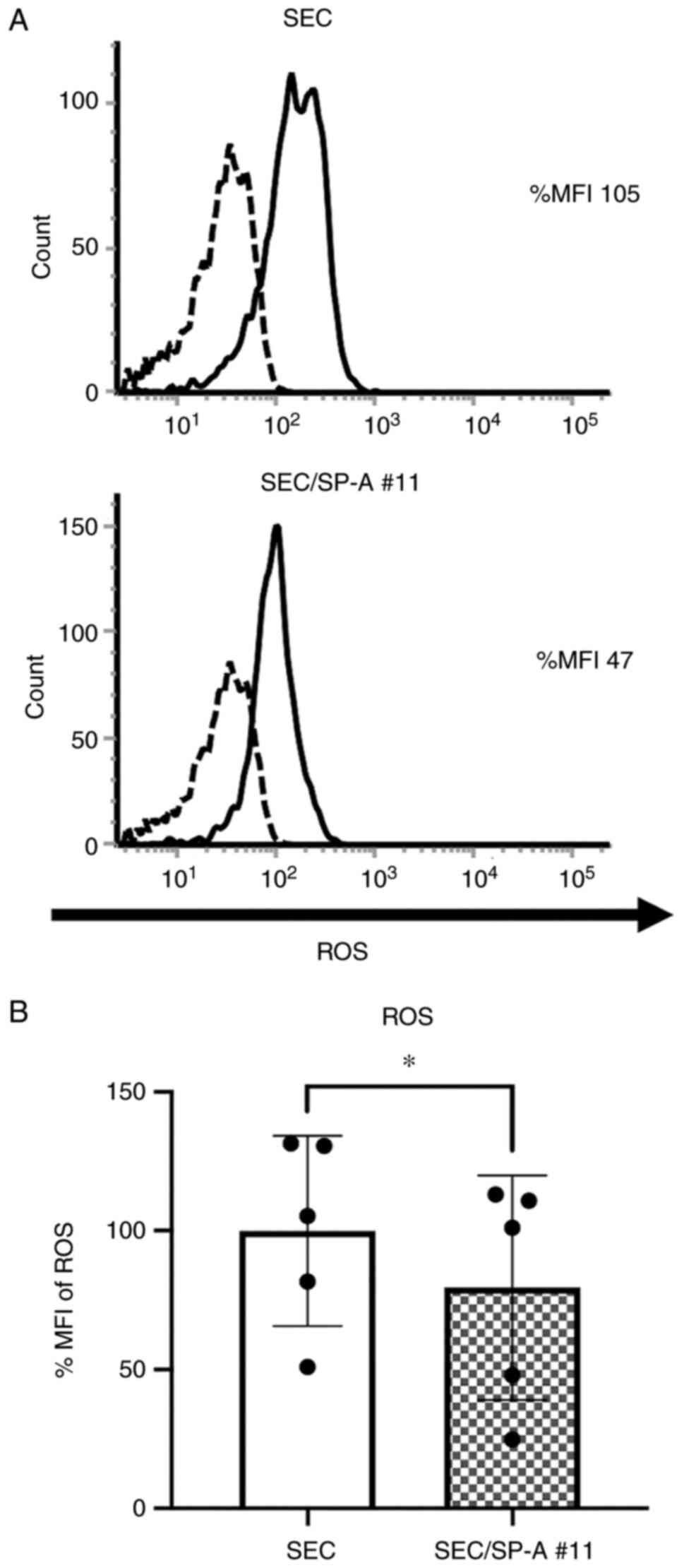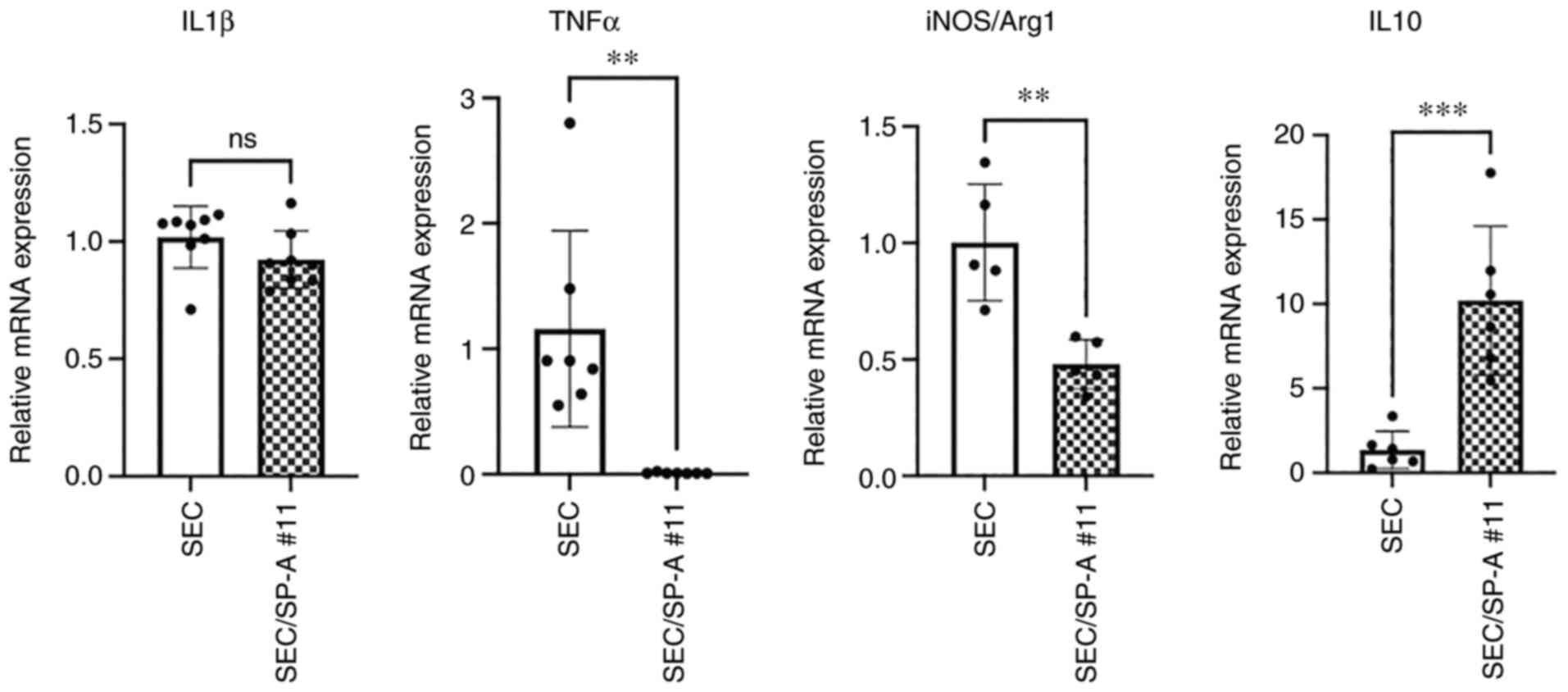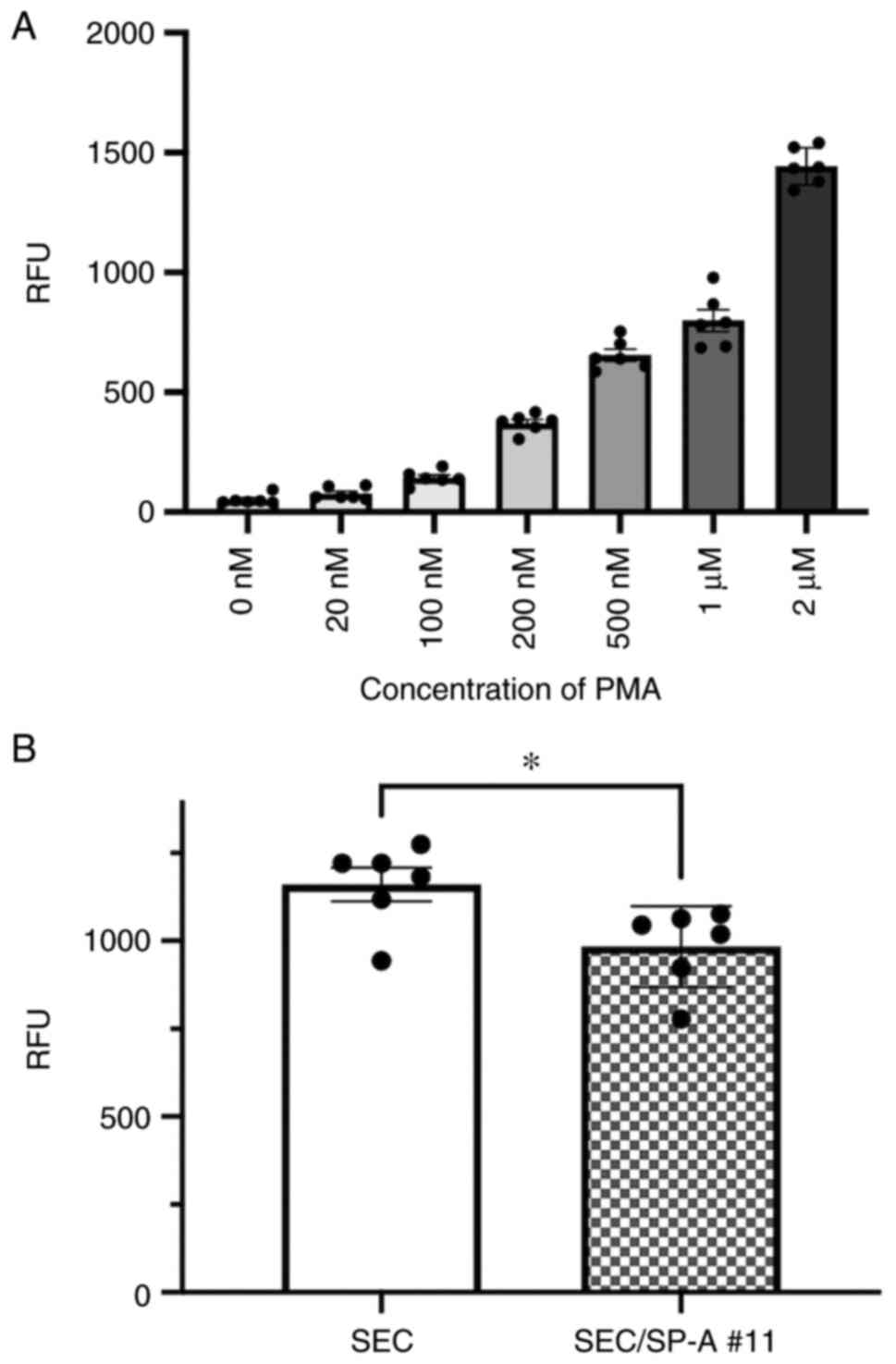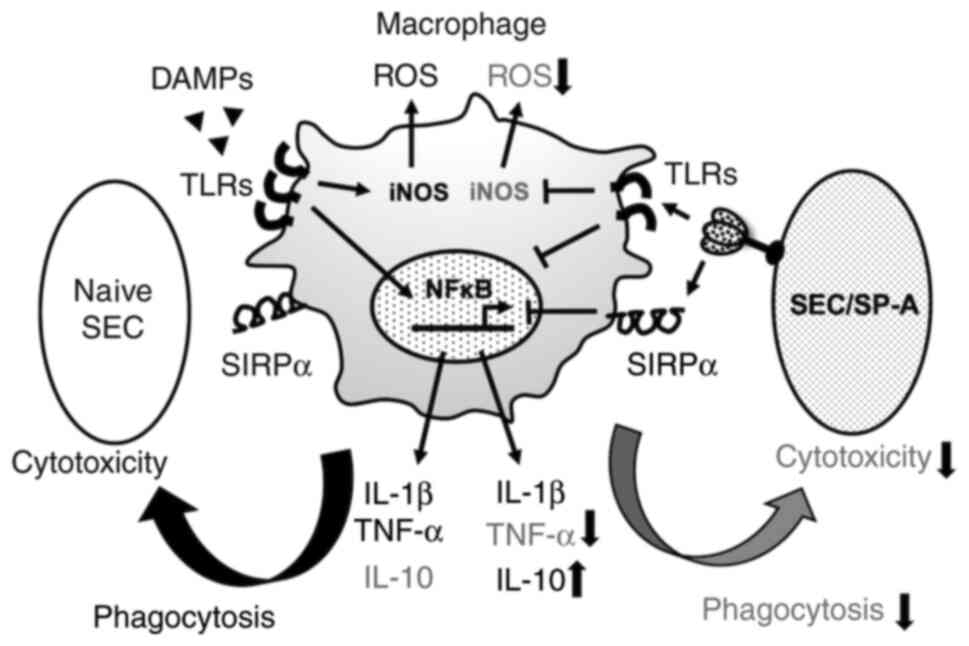|
1
|
Niu D, Wei HJ, Lin L, George H, Wang T,
Lee IH, Zhao HY, Wang Y, Kan Y, Shrock E, et al: Inactivation of
porcine endogenous retrovirus in pigs using CRISPR-Cas9. Science.
357:1303–1307. 2017.PubMed/NCBI View Article : Google Scholar
|
|
2
|
Servick K: Xenotransplant advances may
prompt human trials. Science. 357(1338)2017.PubMed/NCBI View Article : Google Scholar
|
|
3
|
Cooper DKC, Ezzelarab M, Iwase H and Hara
H: Perspectives on the optimal genetically engineered pig in 2018
for initial clinical trials of kidney or heart xenotransplantation.
Transplantation. 102:1974–1982. 2018.PubMed/NCBI View Article : Google Scholar
|
|
4
|
Cooper DK, Gaston R, Eckhoff D, Ladowski
J, Yamamoto T, Wang L, Iwase H, Hara H, Tector M and Tector AJ:
Xenotransplantation-The current status and prospects. Br Med Bull.
125:5–14. 2018.PubMed/NCBI View Article : Google Scholar
|
|
5
|
Fukuta D, Miyagawa S, Yamada M, Matsunami
K, Kurihara T, Shirasu A, Hattori H and Shirakura R: Effect of
various forms of the C1 esterase inhibitor (C1-INH) and DAF on
complement-mediated xenogeneic cell lysis. Xenotransplantation.
10:132–141. 2003.PubMed/NCBI View Article : Google Scholar
|
|
6
|
Miyagawa S, Kubo T, Matsunami K, Kusama T,
Beppu K, Nozaki H, Morita T, Ahn C, Kim JY, Fukuta D and Shirakura
R: Delta-short consensus repeat 4-decay accelerating factor (DAF:
CD55) inhibits complement-mediated cytolysis but not NK
cell-mediated cytolysis. J Immunol. 173:3945–3952. 2004.PubMed/NCBI View Article : Google Scholar
|
|
7
|
Miyagawa S, Fukuta D, Kitano E, Kobayashi
C, Fumimoto Y, Shirasu A, Hattori H, Shirakura R and Fukuzawa M:
Effect of tandem forms of DAF(CD55) on complement-mediated
xenogeneic cell lysis. Xenotransplantation. 13:433–439.
2006.PubMed/NCBI View Article : Google Scholar
|
|
8
|
Cardone J, Le Friec G and Kemper C: CD46
in innate and adaptive immunity: An update. Clin Exp Immunol.
164:301–311. 2011.PubMed/NCBI View Article : Google Scholar
|
|
9
|
Cadili A and Kneteman N: The role of
macrophages in xenograft rejection. Transplant Proc. 40:3289–3293.
2008.PubMed/NCBI View Article : Google Scholar
|
|
10
|
Wang H and Yang YG: Innate cellular
immunity and xenotransplantation. Curr Opin Organ Transplant.
17:162–167. 2012.PubMed/NCBI View Article : Google Scholar
|
|
11
|
Vadori M and Cozzi E: The immunological
barriers to xenotransplantation. Tissue Antigens. 86:239–253.
2015.PubMed/NCBI View Article : Google Scholar
|
|
12
|
Candinas D, Belliveau S, Koyamada N,
Miyatake T, Hechenleitner P, Mark W, Bach FH and Hancock WW: T cell
independence of macrophage and natural killer cell infiltration,
cytokine production, and endothelial activation during delayed
xenograft rejection. Transplantation. 62:1920–1927. 1996.PubMed/NCBI View Article : Google Scholar
|
|
13
|
Fox A, Mountford J, Braakhuis A and
Harrison LC: Innate and adaptive immune responses to nonvascular
xenografts: Evidence that macrophages are direct effectors of
xenograft rejection. J Immunol. 166:2133–2140. 2001.PubMed/NCBI View Article : Google Scholar
|
|
14
|
Xu XC, Goodman J, Sasaki H, Lowell J and
Mohanakumar T: Activation of natural killer cells and macrophages
by porcine endothelial cells augments specific T-cell xenoresponse.
Am J Transplant. 2:314–322. 2002.PubMed/NCBI View Article : Google Scholar
|
|
15
|
Adams S, van der Laan LJ, Vernon-Wilson E,
Renardel de Lavalette C, Döpp EA, Dijkstra CD, Simmons DL and van
den Berg TK: Signal-regulatory protein is selectively expressed by
myeloid and neuronal cells. J Immunol. 161:1853–1859.
1998.PubMed/NCBI
|
|
16
|
Itoh T, Hata Y, Nishinakamura H, Kumano K,
Takahashi H and Kodama S: Islet-derived damage-associated molecular
pattern molecule contributes to immune responses following
microencapsulated neonatal porcine islet xenotransplantation in
mice. Xenotransplantation. 23:393–404. 2016.PubMed/NCBI View Article : Google Scholar
|
|
17
|
Martin BM, Samy KP, Lowe MC, Thompson PW,
Cano J, Farris AB, Song M, Dove CR, Leopardi FV, Strobert EA, et
al: Dual islet transplantation modeling of the instant
blood-mediated inflammatory reaction. Am J Transplant.
15:1241–1252. 2015.PubMed/NCBI View Article : Google Scholar
|
|
18
|
Matsunami K, Miyagawa S, Nakai R, Yamada M
and Shirakura R: Modulation of the leader peptide sequence of the
HLA-E gene up-regulates its expression and down-regulates natural
killer cell-mediated swine endothelial cell lysis. Transplantation.
73:1582–1589. 2002.PubMed/NCBI View Article : Google Scholar
|
|
19
|
Matsunami K, Kusama T, Okura E, Shirakura
R, Fukuzawa M and Miyagawa S: Involvement of position-147 for HLA-E
expression. Biochem Biophys Res Commun. 347:692–697.
2006.PubMed/NCBI View Article : Google Scholar
|
|
20
|
Maeda A, Kawamura T, Ueno T, Usui N,
Eguchi H and Miyagawa S: The suppression of inflammatory
macrophage-mediated cytotoxicity and proinflammatory cytokine
production by transgenic expression of HLA-E. Transpl Immunol.
29:76–81. 2013.PubMed/NCBI View Article : Google Scholar
|
|
21
|
Maeda A, Kawamura T, Nakahata K, Ueno T,
Usui N, Eguchi H and Miyagawa S: Regulation of macrophage-mediated
xenocytotoxicity by overexpression of alpha-2,6-sialyltransferase
in swine endothelial cells. Transplant Proc. 46:1256–1258.
2014.PubMed/NCBI View Article : Google Scholar
|
|
22
|
Esquivel EL, Maeda A, Eguchi H, Asada M,
Sugiyama M, Manabe C, Sakai R, Matsuura R, Nakahata K, Okuyama H
and Miyagawa S: Suppression of human macrophage-mediated
cytotoxicity by transgenic swine endothelial cell expression of
HLA-G. Transpl Immunol. 32:109–115. 2015.PubMed/NCBI View Article : Google Scholar
|
|
23
|
Maeda A, Eguchi H, Nakahata K, Lo PC,
Yamanaka K, Kawamura T, Matsuura R, Sakai R, Asada M, Okuyama H and
Miyagawa S: Monocytic MDSCs regulate macrophage-mediated xenogenic
cytotoxicity. Transpl Immunol. 33:140–145. 2015.PubMed/NCBI View Article : Google Scholar
|
|
24
|
Sakai R, Maeda A, Choi TV, Lo PC,
Jiaravuthisan P, Shabri AM, Wang HT, Matsuura R, Kodama T, Eguchi
H, et al: Human CD200 suppresses macrophage-mediated xenogeneic
cytotoxicity and phagocytosis. Surg Today. 48:119–126.
2018.PubMed/NCBI View Article : Google Scholar
|
|
25
|
Bridges JP, Davis HW, Damodarasamy M,
Kuroki Y, Howles G, Hui DY and McCormack FX: Pulmonary surfactant
proteins A and D are potent endogenous inhibitors of lipid
peroxidation and oxidative cellular injury. J Biol Chem.
275:38848–38855. 2000.PubMed/NCBI View Article : Google Scholar
|
|
26
|
LeVine AM and Whitsett JA: Pulmonary
collectins and innate host defense of the lung. Microbes Infect.
3:161–166. 2001.PubMed/NCBI View Article : Google Scholar
|
|
27
|
Borron P, McIntosh JC, Korfhagen TR,
Whitsett JA, Taylor J and Wright JR: Surfactant-associated protein
A inhibits LPS-induced cytokine and nitric oxide production in
vivo. Am J Physiol Lung Cell Mol Physiol. 278:L840–L847.
2000.PubMed/NCBI View Article : Google Scholar
|
|
28
|
Kremlev SG and Phelps DS: Surfactant
protein A stimulation of inflammatory cytokine and immunoglobulin
production. Am J Physiol. 267 (6 Pt 1):L712–L719. 1994.PubMed/NCBI View Article : Google Scholar
|
|
29
|
Gardai SJ, Xiao YQ, Dickinson M, Nick JA,
Voelker DR, Greene KE and Henson PM: By binding SIRPalpha or
calreticulin/CD91, lung collectins act as dual function
surveillance molecules to suppress or enhance inflammation. Cell.
115:13–23. 2003.PubMed/NCBI View Article : Google Scholar
|
|
30
|
Janssen WJ, McPhillips KA, Dickinson MG,
Linderman DJ, Morimoto K, Xiao YQ, Oldham KM, Vandivier RW, Henson
PM and Gardai SJ: Surfactant proteins A and D suppress alveolar
macrophage phagocytosis via interaction with SIRPalpha. Am J Respir
Crit Care Med. 178:158–167. 2008.PubMed/NCBI View Article : Google Scholar
|
|
31
|
Jiaravuthisan P, Maeda A, Takakura C, Wang
HT, Sakai R, Shabri AM, Lo PC, Matsuura R, Kodama T, Eguchi H, et
al: A membrane-type surfactant protein D (SP-D) suppresses
macrophage-mediated cytotoxicity in swine endothelial cells.
Transpl Immunol. 47:44–48. 2018.PubMed/NCBI View Article : Google Scholar
|
|
32
|
Livak KJ and Schmittengen TD: Analysis of
relative gene expression data using real-time quantitative PCR and
the 2(-Delta Delta C(T)) method. Methods. 25:402–408.
2001.PubMed/NCBI View Article : Google Scholar
|
|
33
|
Noguchi Y, Maeda A, Lo PC, Takakura C,
Haneda T, Kodama T, Yoneyama T, Toyama C, Tazuke Y, Okuyama H and
Miyagawa S: Human TIGIT on porcine aortic endothelial cells
suppresses xenogeneic macrophage-mediated cytotoxicity.
Immunobiology. 224:605–613. 2019.PubMed/NCBI View Article : Google Scholar
|
|
34
|
Porrett PM, Orandi BJ, Kumar V, Houp J,
Anderson D, Cozette Killian A, Hauptfeld-Dolejsek V, Martin DE,
Macedon S, Budd N, et al: First clinical-grade porcine kidney
xenotransplant using a human decedent model. Am J Transplant.
22:1037–1053. 2022.PubMed/NCBI View Article : Google Scholar
|
|
35
|
Ohya M, Nishitani C, Sano H, Yamada C,
Mitsuzawa H, Shimizu T, Saito T, Smith K, Crouch E and Kuroki Y:
Human pulmonary surfactant protein D binds the extracellular
domains of Toll-like receptors 2 and 4 through the carbohydrate
recognition domain by a mechanism different from its binding to
phosphatidylinositol and lipopolysaccharide. Biochemistry.
45:8657–8664. 2006.PubMed/NCBI View Article : Google Scholar
|
|
36
|
Henning LN, Azad AK, Parsa KV, Crowther
JE, Tridandapani S and Schlesinger LS: Pulmonary surfactant protein
A regulates TLR expression and activity in human macrophages. J
Immunol. 180:7847–7858. 2008.PubMed/NCBI View Article : Google Scholar
|
|
37
|
Agrawal V, Smart K, Jilling T and Hirsch
E: Surfactant protein (SP)-A suppresses preterm delivery and
inflammation via TLR2. PLoS One. 8(e63990)2013.PubMed/NCBI View Article : Google Scholar
|
|
38
|
Nakazawa D, Shida H, Kusunoki Y, Miyoshi
A, Nishio S, Tomaru U, Atsumi T and Ishizu A: The responses of
macrophages in interaction with neutrophils that undergo NETosis. J
Autoimmun. 67:19–28. 2016.PubMed/NCBI View Article : Google Scholar
|
|
39
|
al-Mohanna F, Collison K, Parhar R, Kwaasi
A, Meyer B, Saleh S, Allen S, al-Sedairy S, Stern D and Yacoub M:
Activation of naive xenogeneic but not allogeneic endothelial cells
by human naive neutrophils: A potential occult barrier to
xenotransplantation. Am J Pathol. 151:111–120. 1997.PubMed/NCBI
|
|
40
|
Sachs UJ, Andrei-Selmer CL, Maniar A,
Weiss T, Paddock C, Orlova VV, Choi EY, Newman PJ, Preissner KT,
Chavakis T and Santoso S: The neutrophil-specific antigen CD177 is
a counter-receptor for platelet endothelial cell adhesion
molecule-1 (CD31). J Biol Chem. 282:23603–23612. 2007.PubMed/NCBI View Article : Google Scholar
|
|
41
|
Sayah DM, Mallavia B, Liu F, Ortiz-Muñoz
G, Caudrillier A, DerHovanessian A, Ross DJ, Lynch JP III, Saggar
R, Ardehali A, et al: Neutrophil extracellular traps are pathogenic
in primary graft dysfunction after lung transplantation. Am J
Respir Crit Care Med. 191:455–463. 2015.PubMed/NCBI View Article : Google Scholar
|
|
42
|
Huang H, Tohme S, Al-Khafaji AB, Tai S,
Loughran P, Chen L, Wang S, Kim J, Billiar T, Wang Y and Tsung A:
Damage-associated molecular pattern-activated neutrophil
extracellular trap exacerbates sterile inflammatory liver injury.
Hepatology. 62:600–614. 2015.PubMed/NCBI View Article : Google Scholar
|
|
43
|
Liu FC, Chuang YH, Tsai YF and Yu HP: Role
of neutrophil extracellular traps following injury. Shock.
41:491–498. 2014.PubMed/NCBI View Article : Google Scholar
|
|
44
|
Kennedy AD and Deleo FR: Neutrophil
apoptosis and the resolution of infection. Immunol Res. 43:25–61.
2009.PubMed/NCBI View Article : Google Scholar
|
|
45
|
Fox S, Leitch AE, Duffin R, Haslett C and
Rossi AG: Neutrophil apoptosis: Relevance to the innate immune
response and inflammatory disease. J Innate Immun. 2:216–227.
2010.PubMed/NCBI View Article : Google Scholar
|















